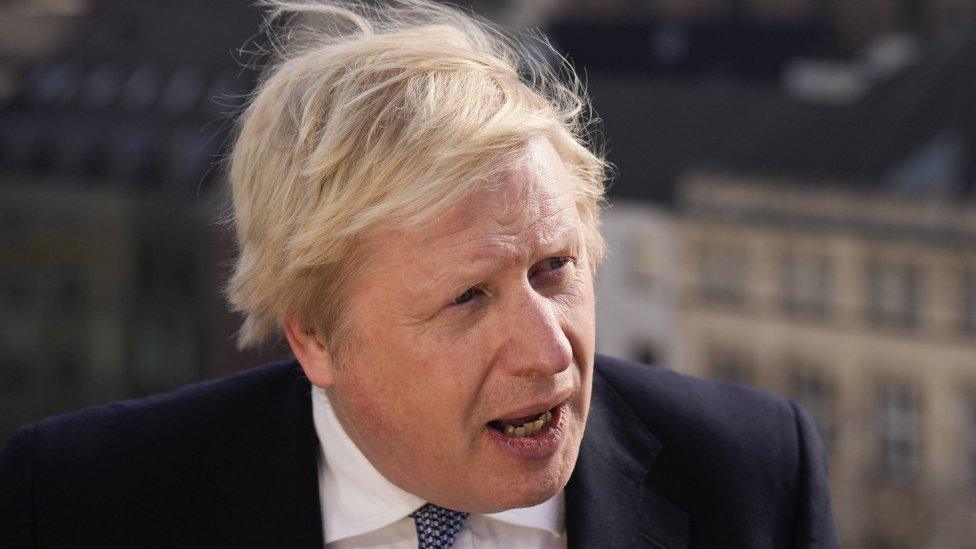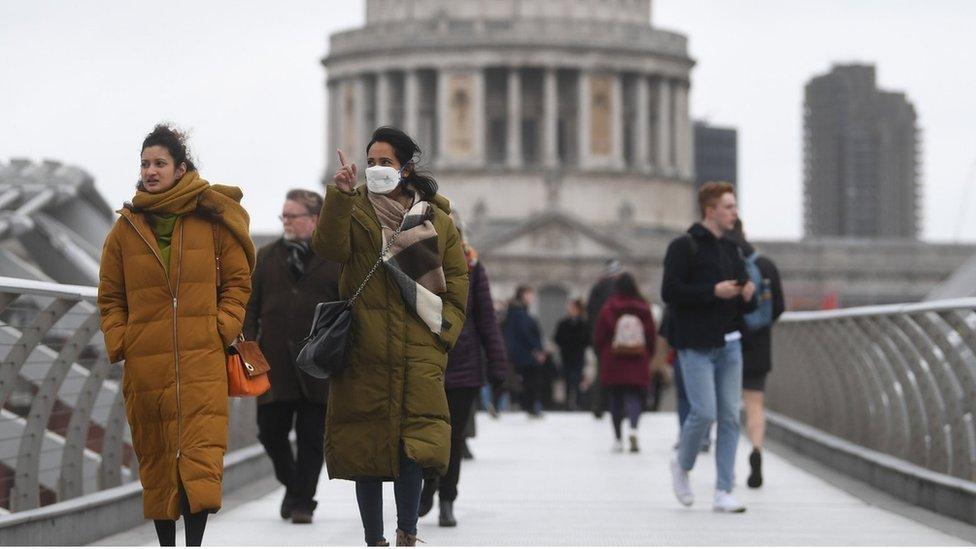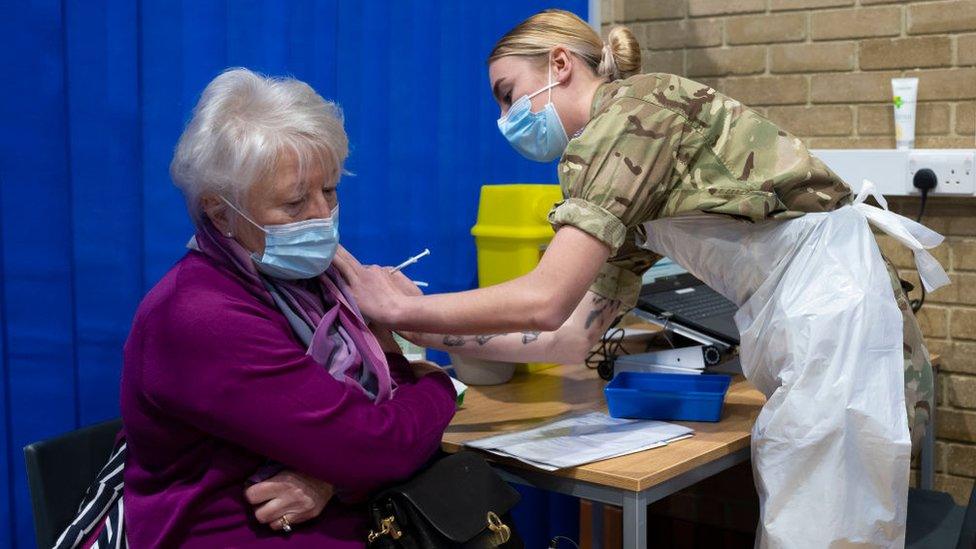Covid: What is Wales' plan for testing and self-isolation?
- Published

Boris Johnson's latest plans for Covid will have a knock-on effect in how Wales tackles the virus.
His announcement to end the legal requirement to self-isolate applies to England - with Wales to keep its rules until at least the end of March.
But how Wales will test for Covid is unclear after the PM announced the end of free testing for most from 1 April.
Welsh ministers said it was "reckless" to change the testing programme.
Conservative Welsh Secretary Simon Hart said with mass testing costing £2bn a month, funding is better used "with a more targeted approach".
What will happen to self-isolation in Wales?
From Thursday all Covid restrictions - including the legal requirement to self-isolate - will end in England.
This is a decision taken separately in each of the four nations of the UK, and Wales has previously announced its own timetable.
The Welsh government has already said it could scrap its remaining restrictions - including the legal requirement to wear masks - at the end of March.
That includes mask wearing in shops, on public transport and in health and social care - restrictions that Wales has kept but no longer apply in England.
The law itself is due to expire on 28 March, but the Welsh government's health minister Eluned Morgan said they have not decided whether to extend this or to allow it to end on that date.
A review of Wales' laws is due to take place at the end of next week.
What will happen to free testing in Wales?
The UK government and NHS Wales have shared the responsibility for testing, since mass testing for Covid began in 2020.
That co-operation has resulted in mass testing sites popping up all over Wales, such as at Cardiff City Stadium.
But it is not clear how this will work in future after Boris Johnson announced mass testing would end on 1 April, with free tests focused on the most vulnerable.
Some of Wales' tests are processed in NHS Wales labs, which have capacity to handle more than 15,000 a day.
But the bulk of tests done in the community are handled by UK government funded 'lighthouse labs'.
For example, in the most recent week that figures are available, 6,197 community tests were dealt with in the Welsh NHS, and 21,001 were examined in non-NHS Wales labs.
But would it want to continue with the current testing programme indefinitely?
One key official had already suggested mass testing could be scrapped in the summer - prior to the much earlier timetable announced on Monday.
Chief Medical Officer Dr Sir Frank Atherton said in January "we can't go on with this volume of testing forever - why would we want to? We don't do that with flu."
He added: "If we reach a point where there are no new variants coming which are a threat to us in the UK, and where we have low levels of infection in the UK and low levels of harm, that's the time to think about dismantling some of our infrastructure around testing."
Boris Johnson has announced the end of coronavirus restrictions in England
Why are Welsh ministers worried?
The Welsh government said any decision to change the National Testing Programme now is "premature and reckless".
Welsh Labour Health Minister Eluned Morgan said dismantling mass testing in England "will cause us problems".
"We're on a route that will hopefully lead us to a point where we will end these measures, but we think this is too early a point," she said.
A surveillance system is needed to spot new variants "and what is being proposed, by the sounds of things, is a system that dismantles everything but without a plan to rebuild if that's necessary".
The testing system is supposed to be UK-wide, she said, adding: "That's what's leading to the fury of the devolved administrations because these decisions are being made without the kind of consultation and certainly the agreement of the devolved administrations."
Frustrations are shared with the leaders of Scottish and Northern Irish administrations.
All three devolved governments wrote to UK ministers on Saturday saying there should be a "managed transition" of testing until the end of June. After that, testing should remain available in some circumstances, including to protect people most at risk.
They called for assurances about funding "to support all nations to protect the health of their public as they see fit".
Allow X content?
This article contains content provided by X. We ask for your permission before anything is loaded, as they may be using cookies and other technologies. You may want to read X’s cookie policy, external and privacy policy, external before accepting. To view this content choose ‘accept and continue’.

Call for Wales to have a plan
The Welsh Conservatives said First Minister Mark Drakeford should set out his own plans for Wales to "live with Covid".
"Though I understand the concerns with winding down testing capacity, it does not serve a great statistical purpose when cases reach low levels and they will still be free to those that need them most," Russell George, Tory health spokesman, said.
UK government Welsh Secretary Simon Hart said: "We have to learn to live with Covid. The prime minister has outlined a balanced plan to help us achieve that. Mass testing costs around £2bn per month - surely our resource, funding and effort is at better use with a more targeted approach?"
He tweeted that if "Welsh government want to continue funding blanket testing going forward then that is a decision for them, they already have the adequate resource and funding to do so".
"This will mean tough decisions against other priorities, but that's what mature governance is all about."
Related topics
- Published21 February 2022

- Published21 February 2022
